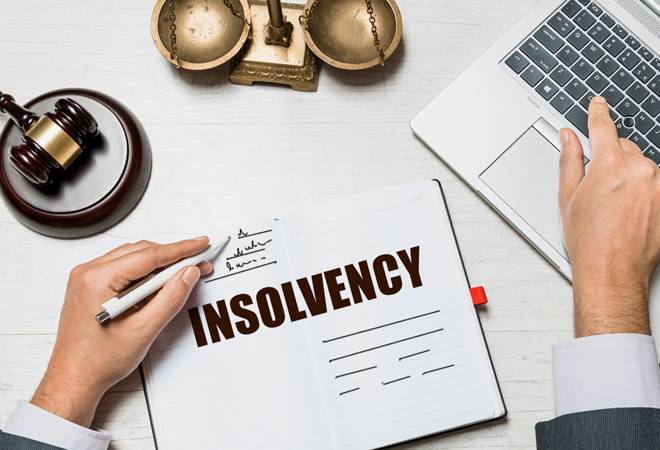More About Insolvency Practitioner
More About Insolvency Practitioner
Blog Article
Our Insolvency Practitioner Diaries
Table of ContentsThe 9-Minute Rule for Insolvency PractitionerThe Best Guide To Insolvency PractitionerInsolvency Practitioner for DummiesInsolvency Practitioner Can Be Fun For EveryoneFascination About Insolvency PractitionerSome Of Insolvency PractitionerThe Main Principles Of Insolvency Practitioner
Bankruptcy is when obligations are higher than the worth of the company, or when a borrower can not pay the financial obligations they owe. A business can end up being financially troubled due to a number of circumstances that result in bad capital. When encountered with insolvency, a service or individual can contact lenders straight and restructure financial debts to pay them off.Insolvency can lead to bankruptcy process, in which lawsuit will certainly be taken against the financially troubled person or entity, and possessions may be liquidated to pay off arrearages. Business owners might get in touch with lenders straight and restructure financial obligations into even more manageable installations. Lenders are typically amenable to this strategy because they wish to be repaid and stay clear of losses, even if the payment is on a delayed timetable.
The Ultimate Guide To Insolvency Practitioner
The proprietor develops a proposal outlining just how the financial debt might be reorganized using cost decreases or various other plans for assistance. The proposal reveals lenders exactly how the organization may create enough cash flow for successful operations while paying its financial obligations. Commonly, a forgiven debt may be considered income by the Internal Profits Solution (IRS).

What Does Insolvency Practitioner Mean?
Business might end up paying big quantities of money in problems and be overcome operations. When operations discontinue, so does the company's income. Absence of earnings leads to accounts payable and creditors asking for money owed to them. Some business end up being financially troubled due to the fact that their items or services do not advance to fit consumers' altering demands.
Expenses exceed profits and costs stay unpaid. Kinds of bankruptcy include cash-flow bankruptcy and balance-sheet insolvency. Cash-flow bankruptcy happens when a company has the assets to cover their debts but they remain in the wrong kind, such as real estate as opposed to fluid funds. Balance-sheet insolvency, on the other hand, suggests a lack of possessions in any form to cover financial obligations.
The internal revenue service states that a person is insolvent when the overall liabilities go beyond total properties. A personal bankruptcy, on click for info the other hand, is an actual court order that portrays exactly how a financially troubled person or company will settle their lenders, or just how they will offer their properties in order to make the payments.
Insolvency Practitioner for Dummies

Comprehending the elements that can bring about bankruptcy, such as overspending, can help you stop bankruptcy and its repercussions.
All About Insolvency Practitioner
It is popular that supervisors and policemans of corporations (and managers of restricted directory obligation firms) owe fiduciary responsibilities to their companies and their shareholders (or members). These fiduciary responsibilities are defined by state statutes and, though there are variations from one state to another, they generally include an obligation of commitment and a responsibility of care.
The task of treatment needs supervisors and police officers to work out persistance, to make enlightened choices, and to act in excellent belief to make sure that their activities are in the most effective passion of the firm. Beyond the extent of this conversation, some states allow these duties to be limited either by so keeping in mind in the business documents or complying with various other needs.
Insolvency Practitioner for Beginners
Many states define bankruptcy in two means( 1) when a firm's obligations become higher than the amount of its possessions or (2) when the firm comes to be not able to pay its financial debts as they end up being dueand embrace both definitions (Insolvency Practitioner). The shift in responsibilities occurs due to the fact that when a firm is bankrupt, there is no value in the company past that owed to the firm's creditors to make sure that the equity owners no longer have a financial stake in the company
Beware concerning providing investors favoritism at the cost of financial institutions (e.g., licensing and moneying a returns or a supply redemption). Take care concerning favoritism in between courses of why not look here investors. Make reasonable efforts to learn all the truths before taking a specific program of activity; directors ought to really believe that any choices made are in the finest passions of the company in its whole (i.e., decisions will be evaluated in hindsight due to the impact of such actions on the company).
In any bankruptcy or insolvency proceeding, payments made to certain creditors at the expense of various other financial institutions can be clawed back, especially if there is some connection between the firm and the creditor. Take into consideration proposing at a yearly investor conference (or any kind of various other meeting of shareholders) a resolution verifying that all prior company choices and actions taken by the supervisors and police officers of the company were taken in excellent confidence after an exercise of reasonable treatment.
The 5-Minute Rule for Insolvency Practitioner
Completely disclose any type of personal or business partnerships with events beyond of deals entailing the firm to stay clear of the appearance of a conflict of interest. In assessing possible fund elevating purchases or a sale of assets of the struggling company, be mindful that these purchases may be looked at later due to any type of succeeding growth of directors' fiduciary responsibilities to include lenders.
Report this page